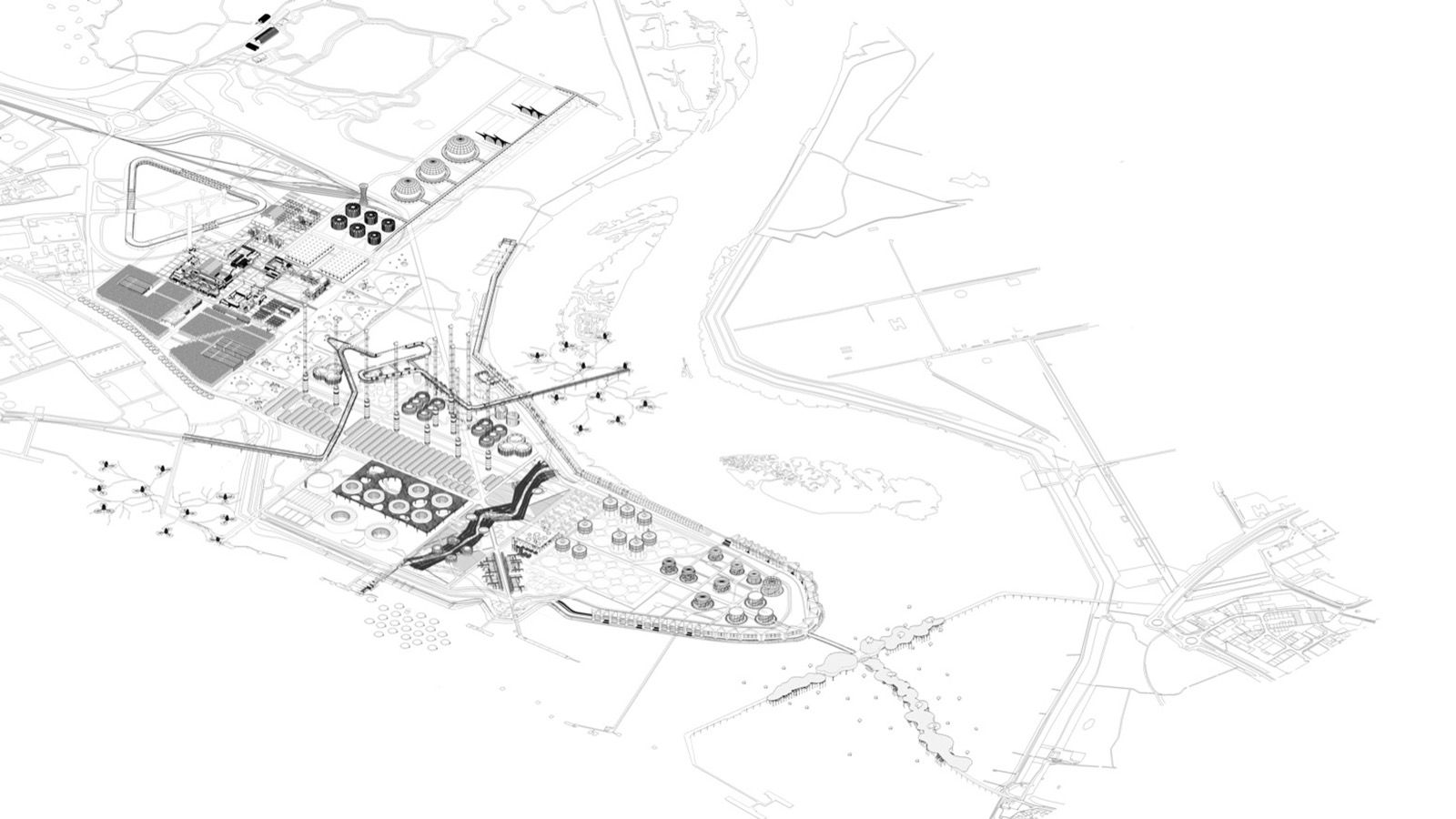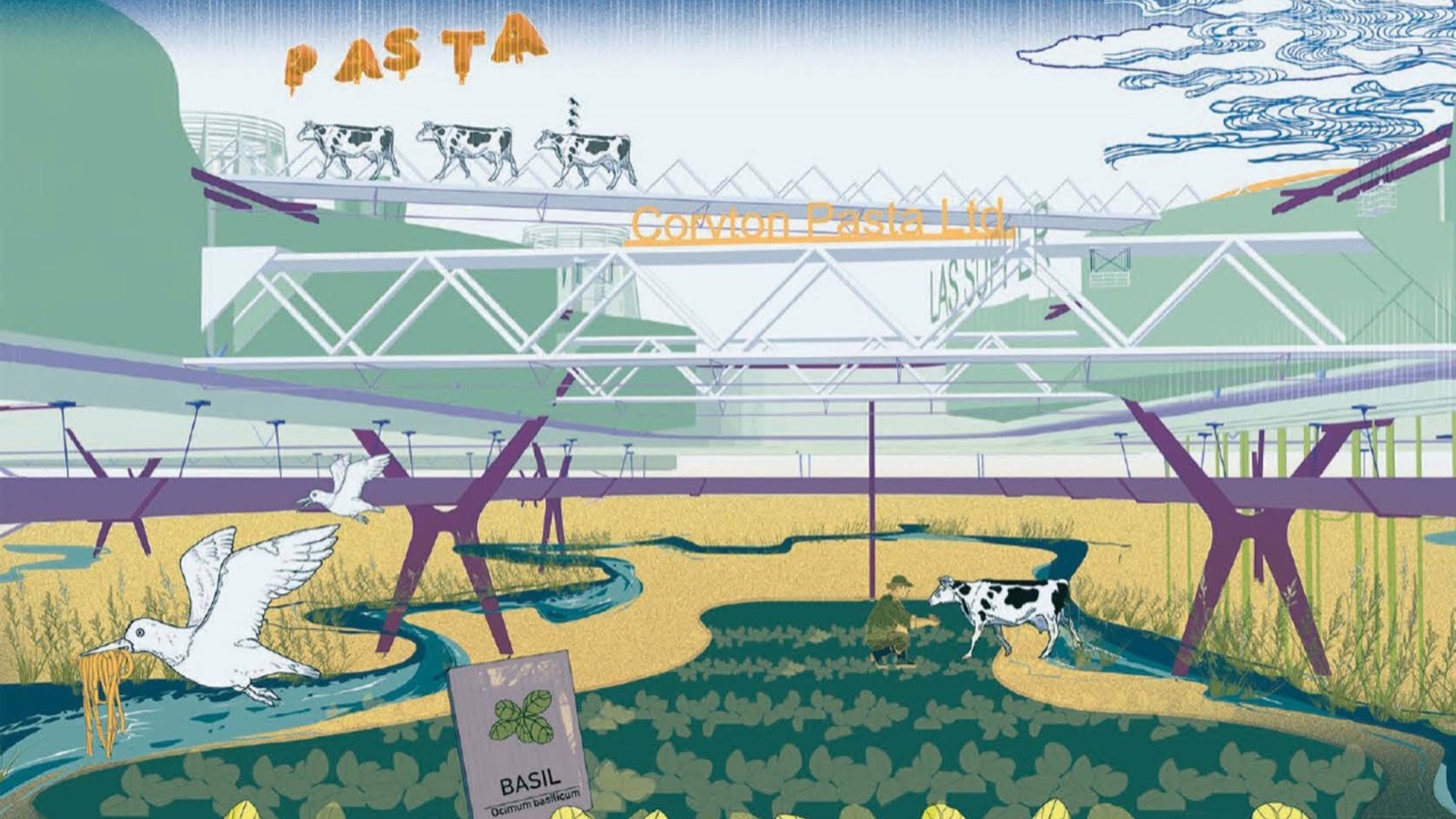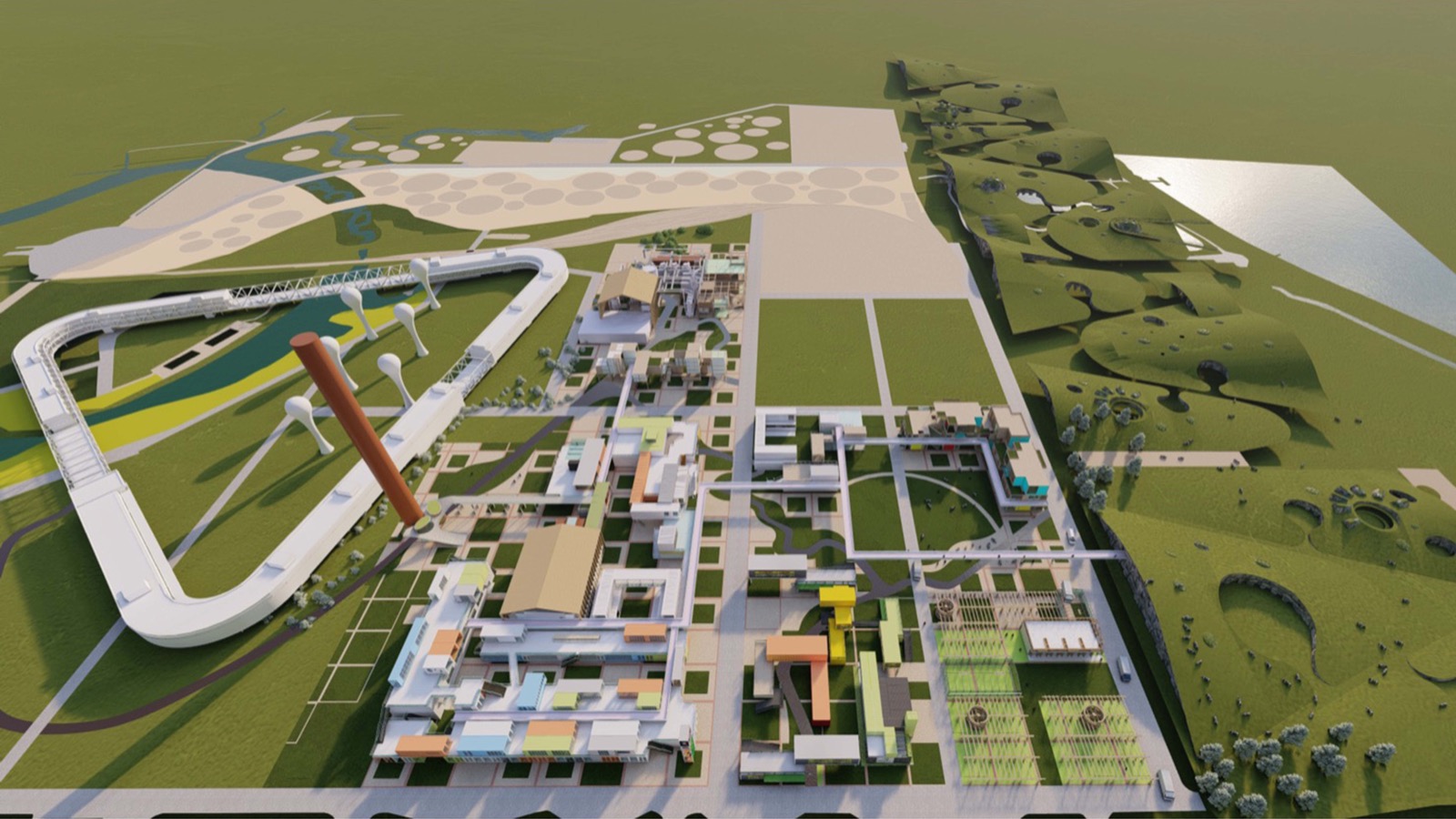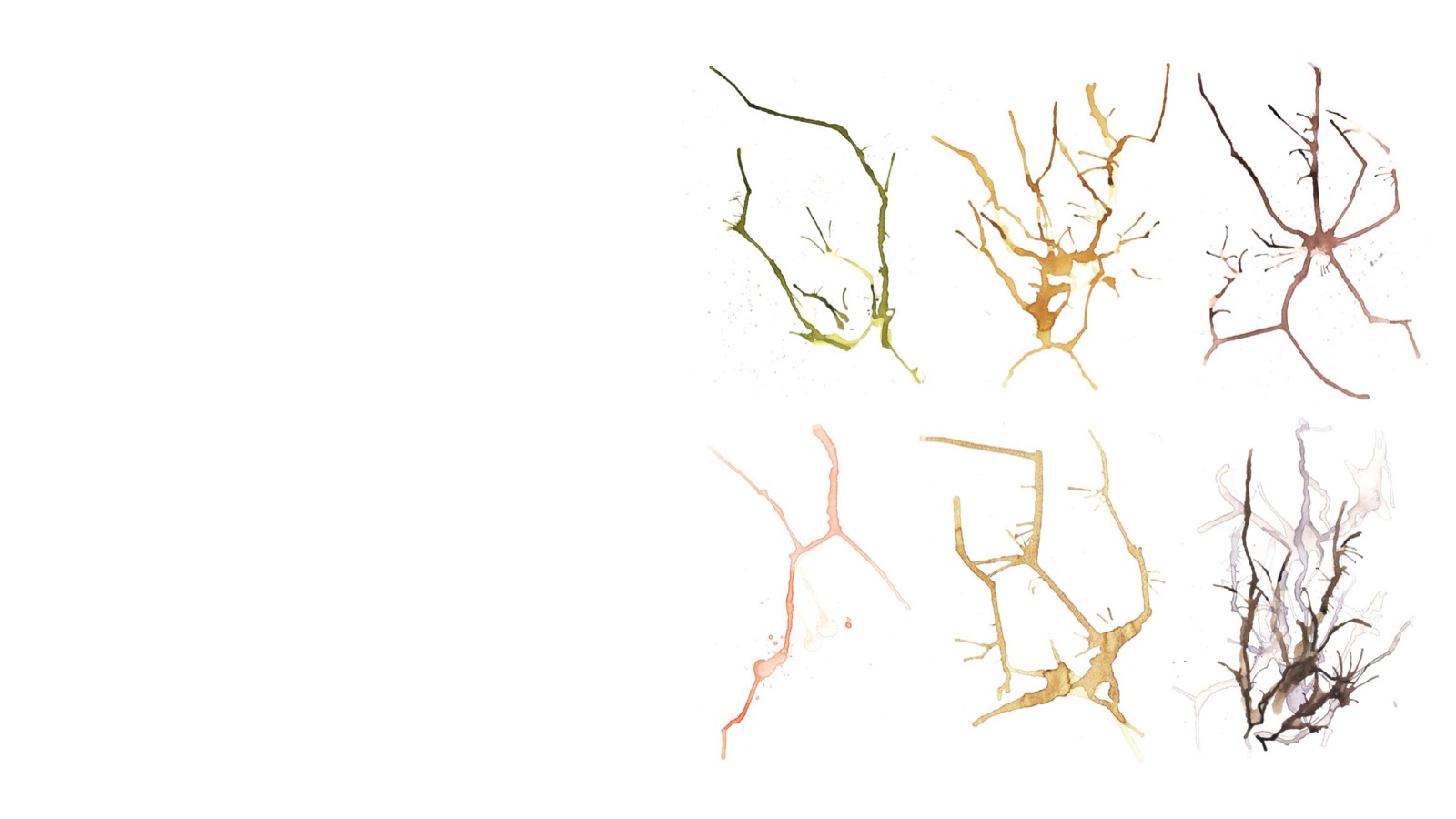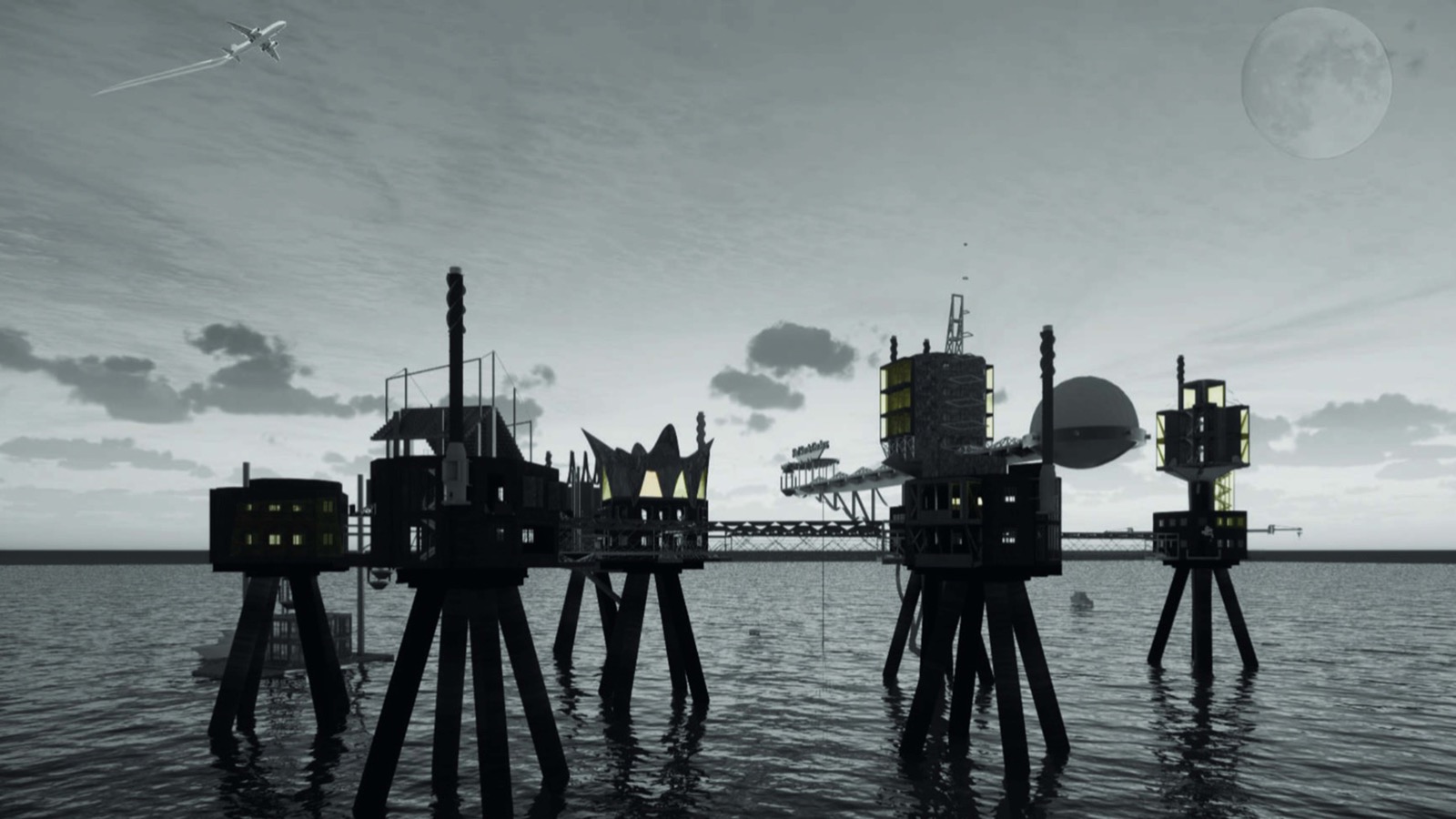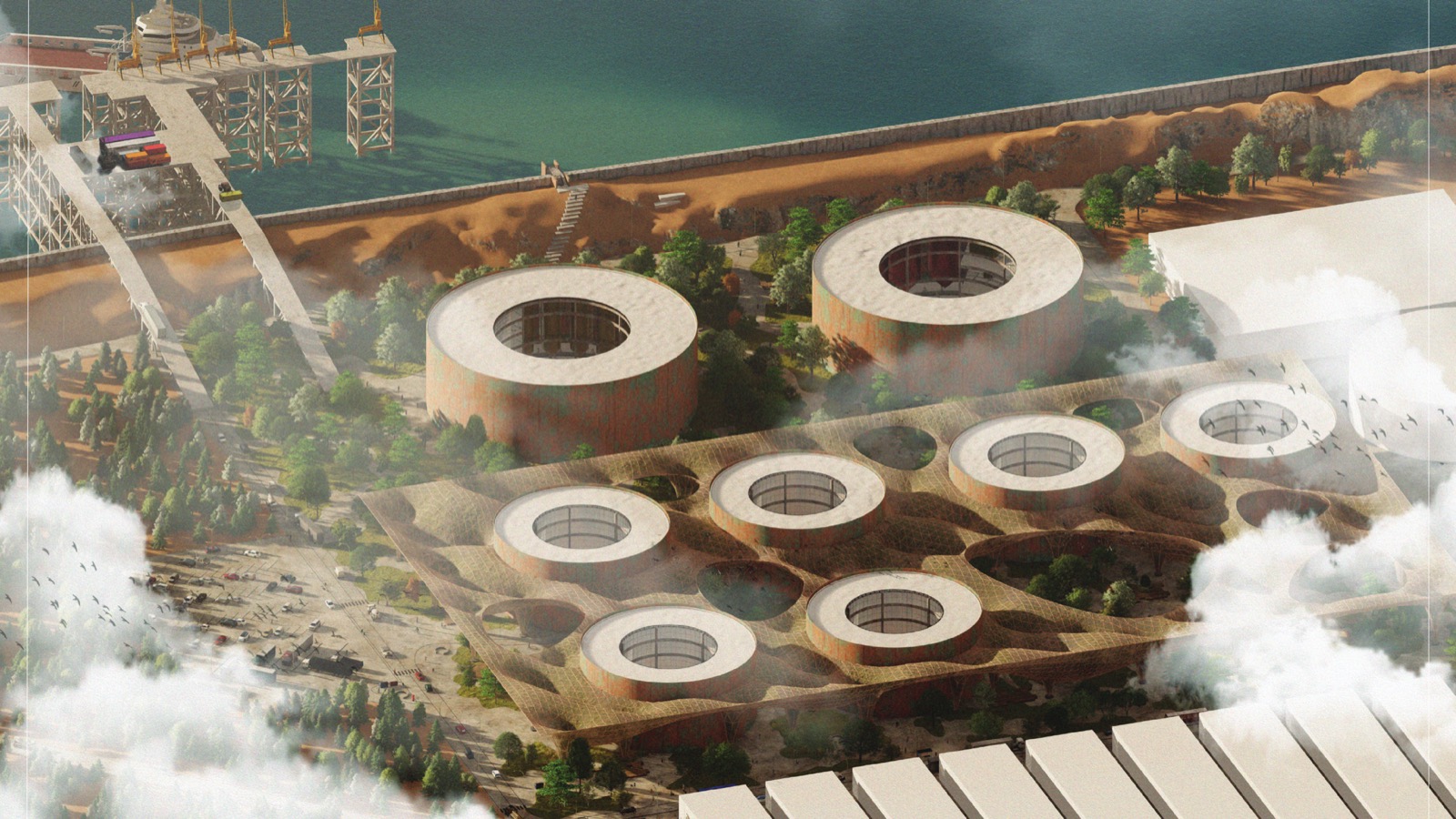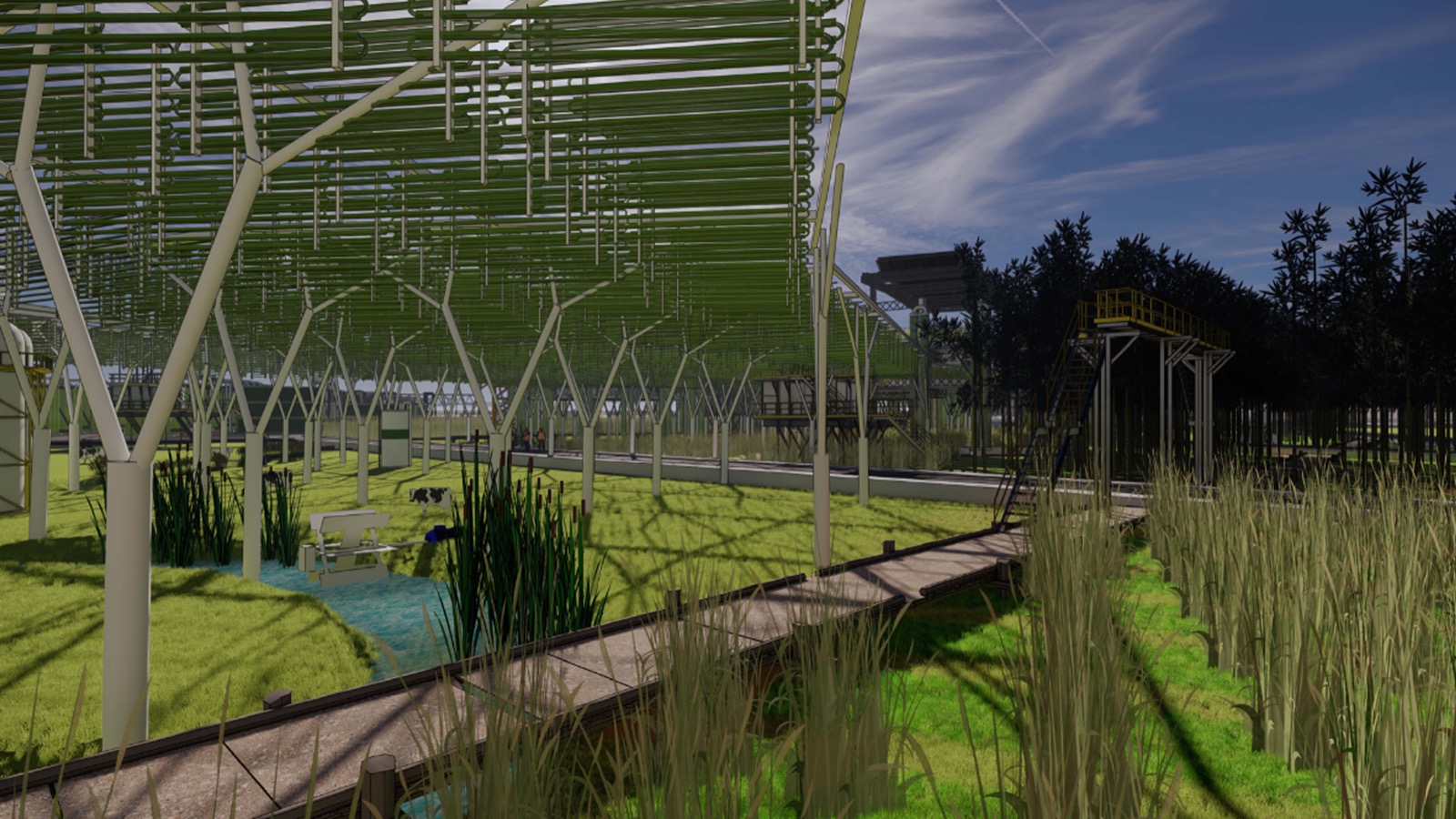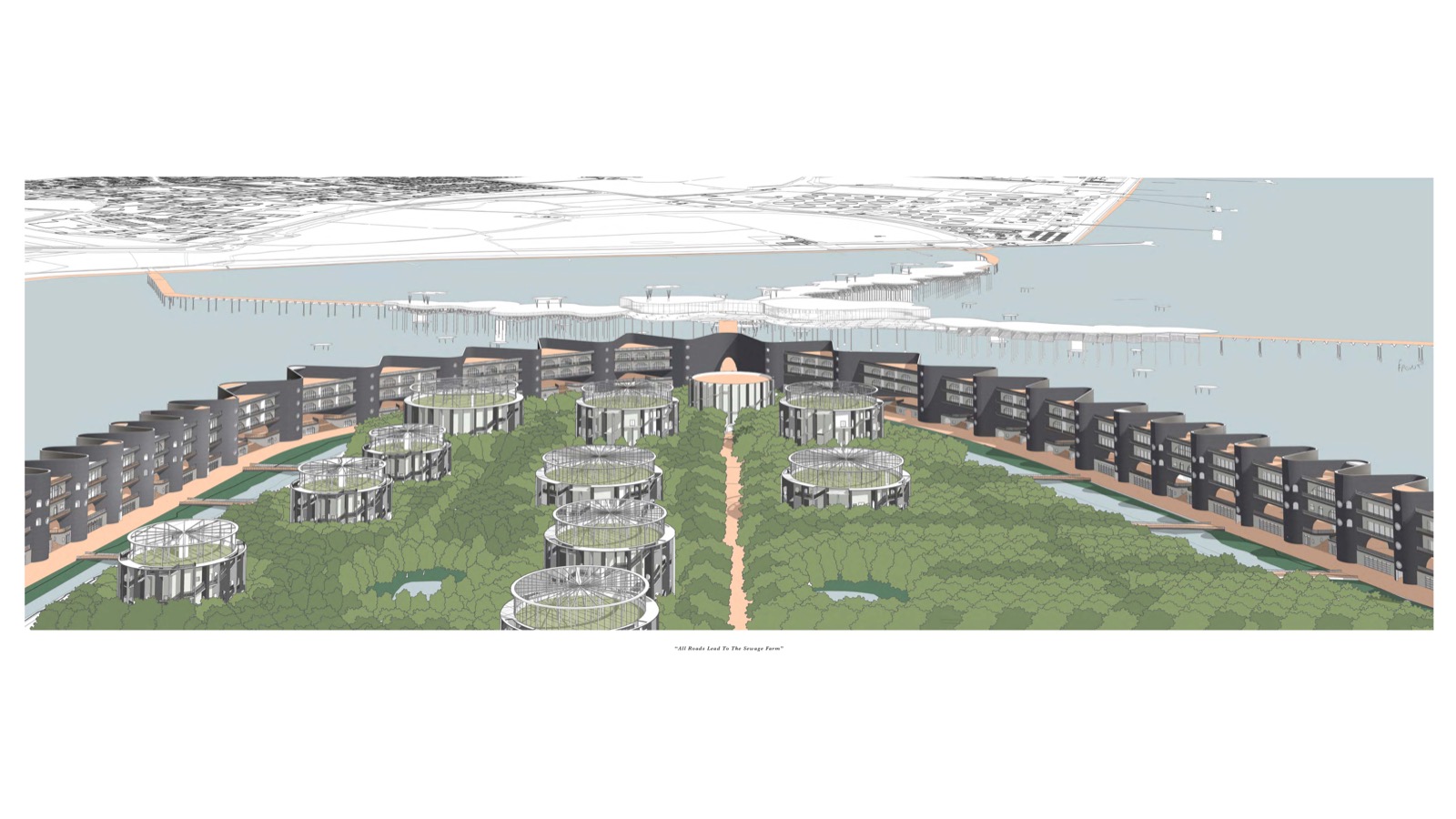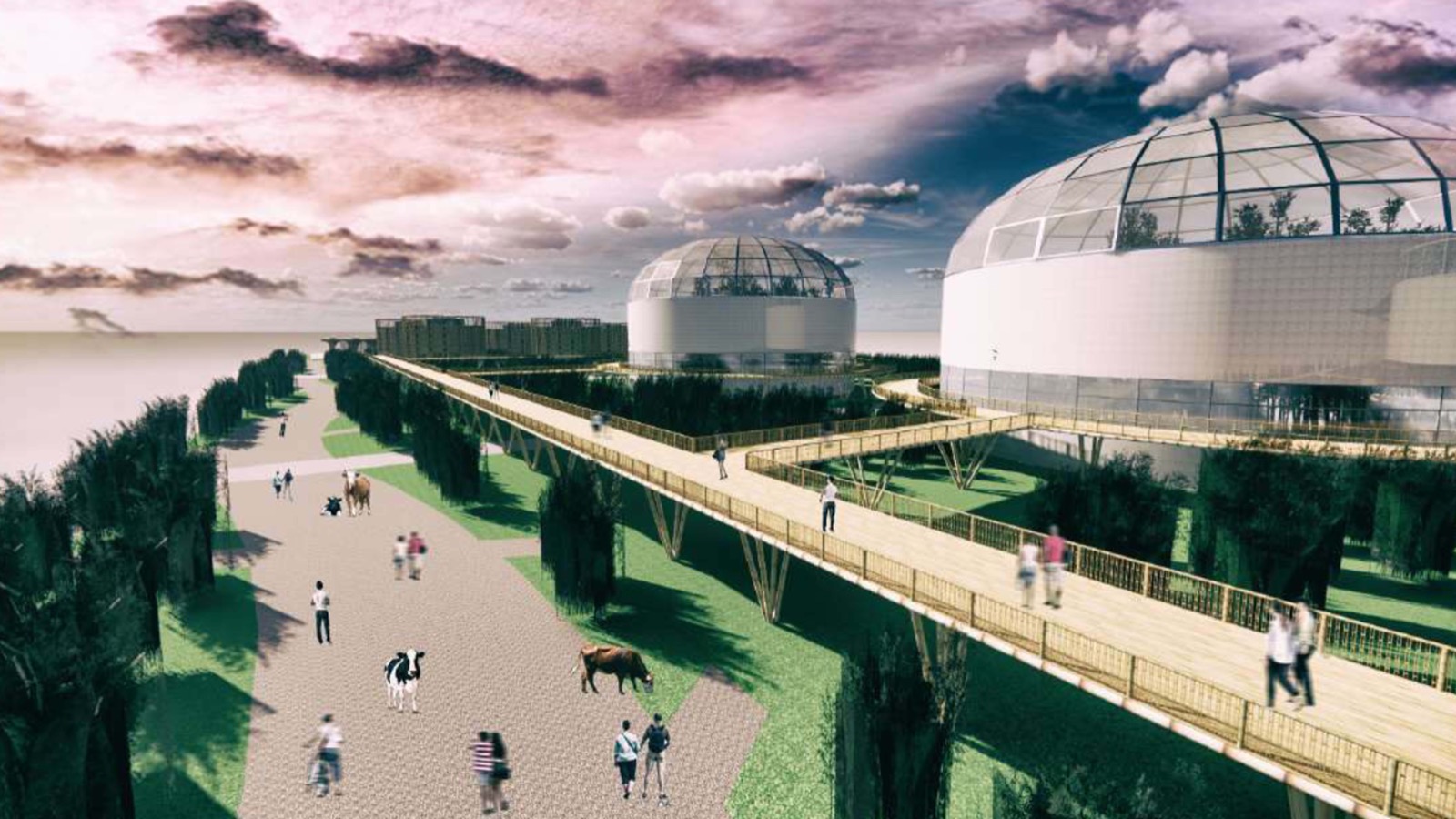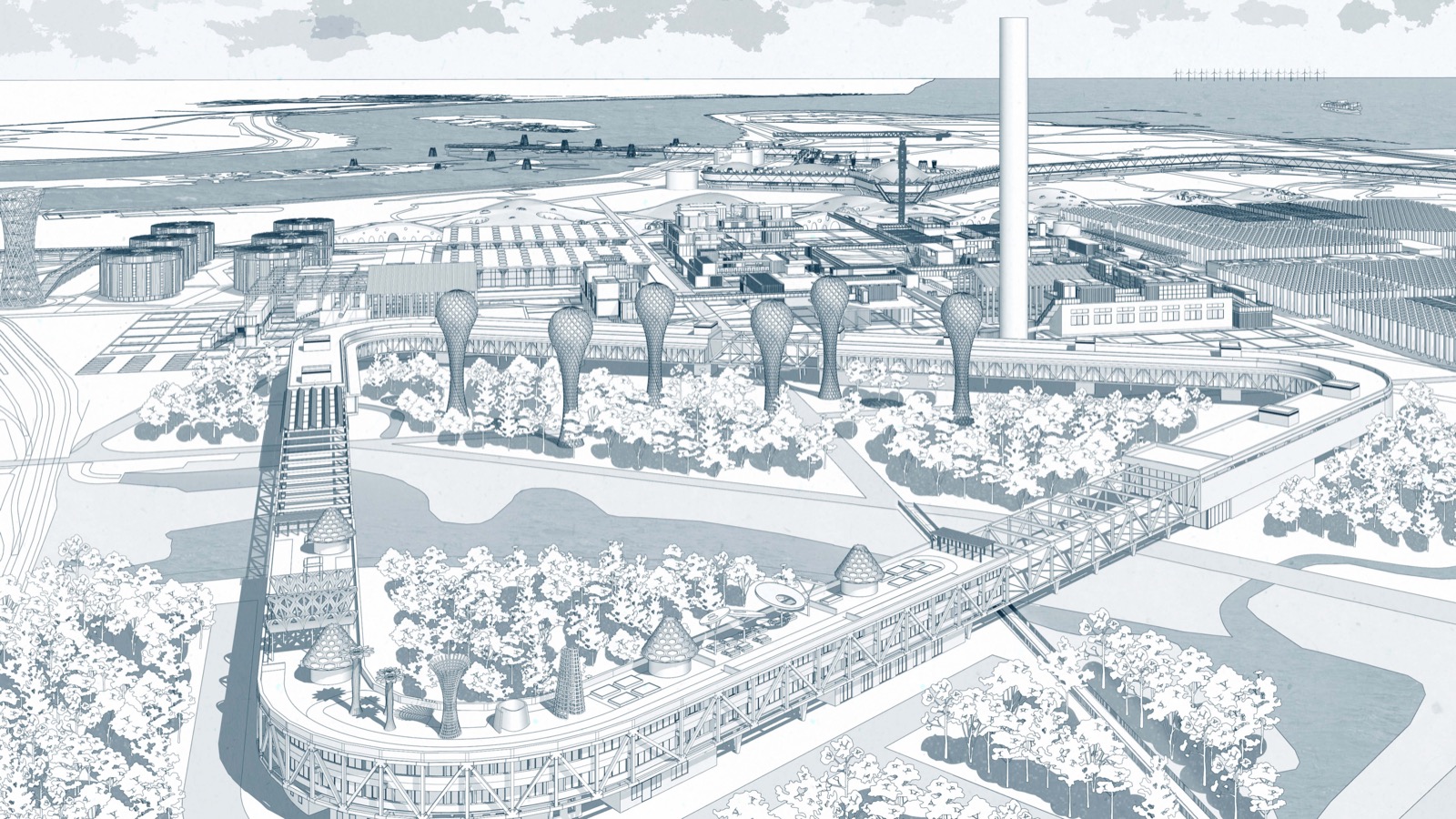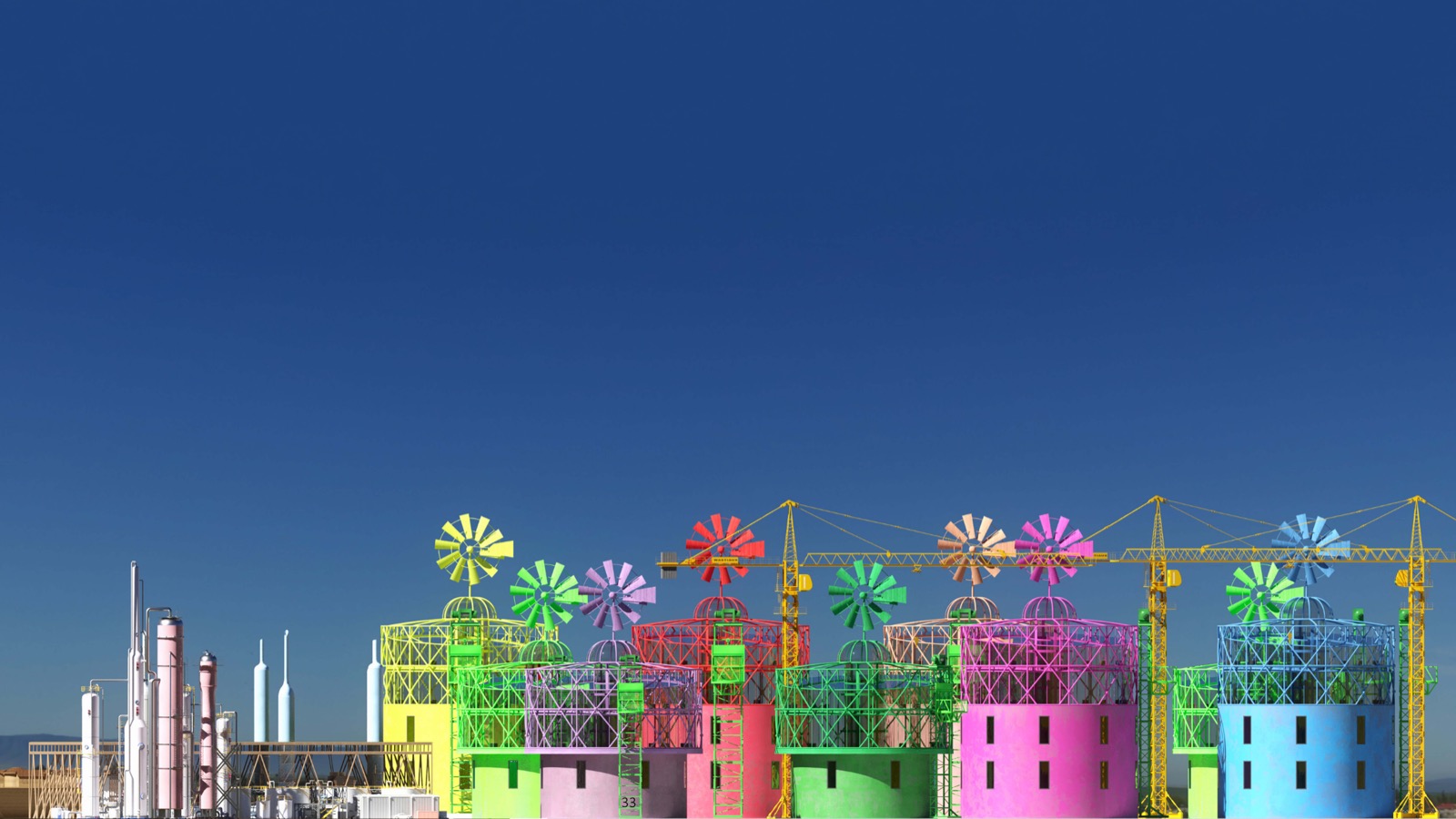Design Studio 12 ARCHIVE
Tutors: Ben Stringer and Peter Barber
Ben Stringer teaches design and cultural context studies at the University of Westminster. Recently he has been publishing articles about architecture and rurality.
Peter Barber has a practice noted for its social housing and urban design projects, mostly around London. He also teaches design studio at the University of Westminster.
Deltaville
This year we imagined and designed alternative programmes for the decommissioned oil refinery at Coryton. It is approximately five square kilometres of concrete, pipes and fuel tanks. It sits on the north side of the Thames estuary between Canvey Island, the London Gateway container terminal and some protected areas of ecological importance and sensitivity.
What possibilities are there for the spaces and structures left behind as we move our economy over to new sustainable sources of energy and materials? What kinds of new relationships might emerge between industry, environment and society in places such as this?
Our brief asked everyone in the studio to identify a different site within the refinery site and to develop a distinct programme for it. Each project includes different programmes of agriculture, industry and housing. While everyone’s individual projects are distinct, relations between them and with the neighbourhood are co- ordinated too. So together they form a hybrid cluster of interacting projects within a group plan. It is the result of individual imaginations, a lot of creative interactions, group thinking and negotiation with the existing infrastructure.
We went on a series of day trips to the refinery, the container port, to nature reserves, to Canvey Island and to the Red Sands Forts. These raised profound questions about global trade and industry, our use of the seas and the form of coastal settlement.










